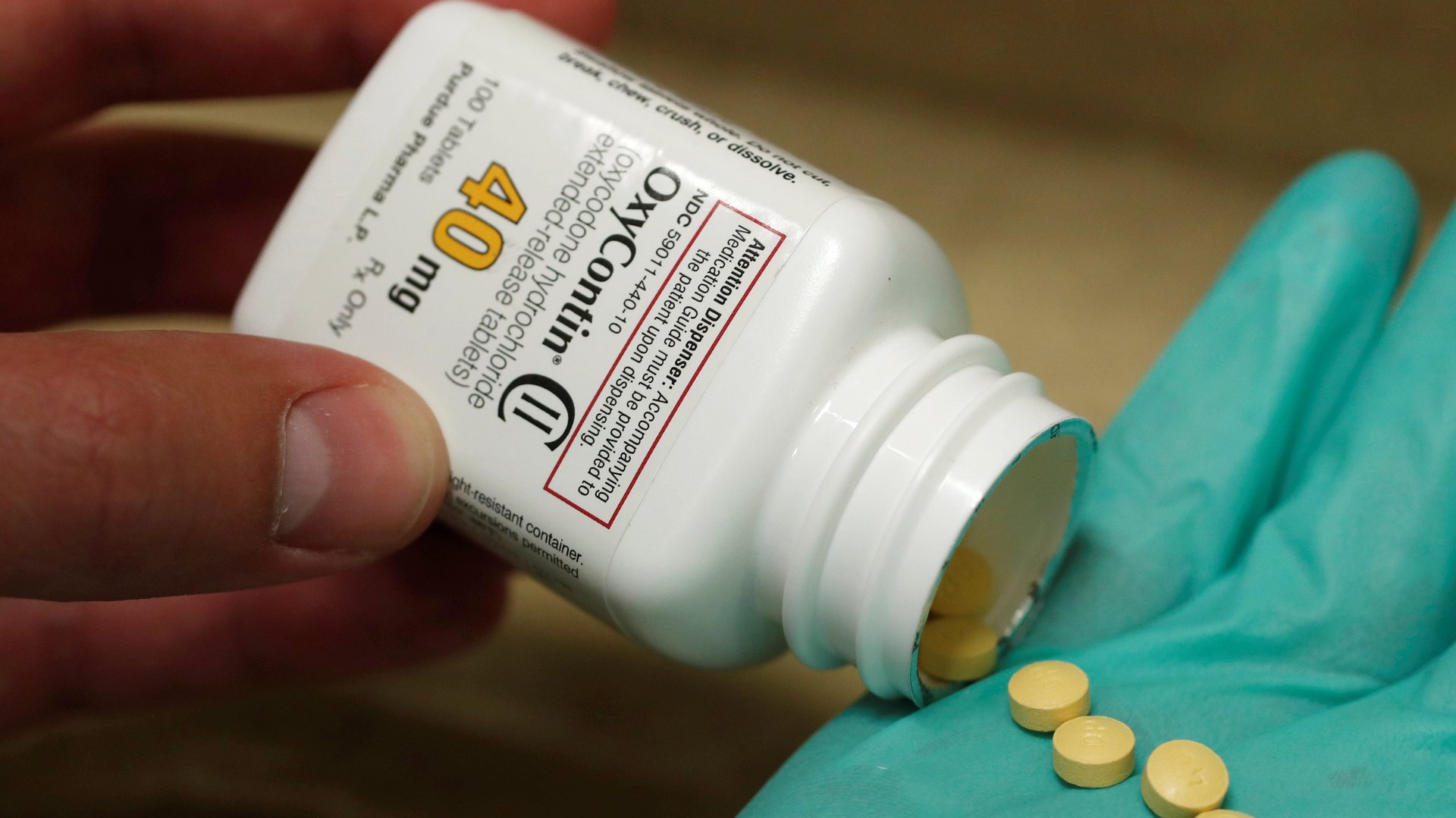The man whose family is accused of fueling the opioid crisis could cash in on it
Richard Sackler, whose family owns Purdue Pharma—makers of the notorious painkiller OxyContin—is part of a team that has been granted a patent aimed at helping to battle the opioid epidemic the company has been accused of helping create.


Richard Sackler, whose family owns Purdue Pharma—makers of the notorious painkiller OxyContin—is part of a team that has been granted a patent aimed at helping to battle the opioid epidemic the company has been accused of helping create.
The Financial Times reported that the patent was granted in January for a new form of buprenorphine, a mild opiate designed to control drug cravings and help addicts wean off stronger opioids. Sackler was listed as one of six inventors. The new formulation comes in the shape of a wafer that can be quickly dissolved beneath the tongue.
The patent, which application acknowledges the extent of the opioid crisis, makes no mention of Purdue Pharma’s connection to the epidemic. The privately held company has been sued more than a thousand times for purportedly fueling the opioid crisis, now so pervasive that one in five Americans know someone who is addicted. (Purdue Pharma has denied allegations from the Massachusetts attorney general that it had “a deadly, deceptive scheme to sell opioids.”)
Critics told the Financial Times that the notion of the Sackler family profiting from treating the national emergency is “very disturbing.” Luke Nasta, director of Camelot, an addiction center in New York, said, “Its reprehensible what Purdue Pharma has done to our public health.” Nasta added that the company “shouldn’t be allowed to peddle any more synthetic opiates—and that includes opioid substitutes.”
The Sackler family has a huge cultural footprint around the world, from a wing at the Louvre in Paris and The Met in New York, to facilities at the University of Oxford and a dozen other universities. The Purdue Pharma scandal is beginning to overshadow its image, since the family heirs reportedly took in tens of millions of dollars from OxyContin, and an internal report suggested that the company long knew about the addictive risks. Purdue Pharma has even taken advantage of patent law to keep OxyContin on the shelves until 2030.
The new patented treatment could be part of the larger effort that Purdue Pharma has been making to combat the opioid epidemic. The company has promised to stop marketing OxyContin, train emergency responders, and fund anti-addiction campaigns.